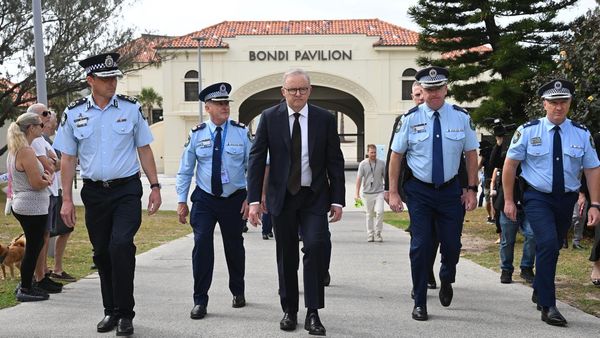
Senior Conservatives on Saturday welcomed Jeremy Hunt’s arrival as chancellor, saying he had effectively “taken over” running the government from Liz Truss after he unceremoniously dumped her tax-cutting agenda on his first day in office.
One senior Conservative MP said it was a huge relief to have someone in charge at the Treasury who was able to admit to recent mistakes and had made it his mission to restore the government’s credibility with the markets. “It is just so good to have a grownup in the room, someone who commands respect and who has experience after this period of utter madness.”
A former cabinet minister added that Hunt’s media interviews on Saturday, warning that taxes would have to rise and suggesting spending would have to be reined in, meant he was effectively running the show. “Jeremy is saying: I’m in charge now, move over,” said the former minister.
Bank of England governor Andrew Bailey also appeared to be happy with the changes in Downing Street. Speaking in Washington, he said he had spoken to Hunt on Friday and had a “meeting of minds” on the issue of “fiscal sustainability”.
It is an unconventional approach, to say the least, for a new chancellor of the exchequer to appear on radio and television within hours of taking over at the Treasury, and then to unceremoniously rip up almost the entire economic policy of the prime minister who has just appointed him.
And equally unusual for that new chancellor to admit – without any attempt at obfuscation – that the PM who just elevated him committed huge policy blunders that sent the markets into near meltdown and government borrowing costs soaring, before she invited him in to try to end the crisis she caused.
But that is what Hunt did on Saturday, seemingly with Truss’s total agreement.
Such is the weakness of the prime minister’s position – and the nervousness on the financial markets – that MPs believe that Hunt’s appointment was her last, desperate throw of the dice.

If she was to have any chance of continuing on Friday, having sacked her previous chancellor Kwasi Kwarteng and changed tack on corporation tax, she had to bring in someone entirely unassociated with her and Kwarteng’s thinking who would, effectively, junk their growth plans and start all over again.
If Hunt’s arrival has felt like a consensual coup, that is because it was just that. “It had to be someone who looked competent who was unideological, just practical, the reverse of her,” said one Tory adviser.
In his interviews on Saturday, Hunt started by talking about the Truss/Kwarteng errors, apparently desperate to demonstrate to the markets that from now on the pursuit of growth at all costs would be secondary to the cause of winning back credibility.
Taxes for the better-off should never have been cut in the current context, he said. “There were mistakes. It was a mistake, when we’re going to be asking for difficult decisions across the board on tax and spending, to cut the rate of tax paid by the very wealthiest,” he said.
And there should never have been a mini-budget involving such huge tax reductions, with no detail on where spending would fall, without an accompanying report by the Office for Budget Responsibility (OBR). “It was a mistake to fly blind and to do these forecasts without giving people the confidence of the Office for Budget Responsibility saying that the sums add up. The prime minister has recognised that. That’s why I’m here.”
On Friday, after three weeks of turmoil in the financial markets as a result of Kwasi Kwarteng’s £43bn tax giveaway mini-budget, Truss sacked her longtime ally at the same time as U-turning on her commitment to drop the planned rise in corporation tax from 19% to 25%, which had been a centrepiece of her leadership campaign. But Hunt warned that more still had to be done to put the finances back in order and that the previous Truss agenda would not work.
Only on Wednesday, Truss insisted at prime minister’s questions that she would not be cutting public spending. But Hunt overturned that pledge, making very clear that spending would have to be reduced, at least against previous expectations, and that all departments would have to find substantial efficiency savings.
A winter of cuts and another period of austerity is now in prospect across the health service and education while any increases in welfare and defence spending will have to be looked at anew.
“We will have some very difficult decisions ahead,” the new chancellor said. “Spending will not rise by as much as people would like, and all government departments are going to have to find more efficiencies than they were planning to.”
As for more talk of tax cuts, Hunt was clear. “Some taxes will not be cut as quickly as people want,” he said. “Some taxes will go up,” though he said his “priority” would be to protect the most vulnerable families and businesses “who are going through a very challenging time”.
The worry in the Treasury is that when markets reopen on Monday there will be more instability. Even after the prime minister sacked Kwarteng and performed her U-turn on corporation tax, they were still nervous.
Speaking to reporters in Washington, Bailey made it clear that he welcomed Hunt’s arrival as chancellor: “It’s not appropriate for me to constrain the choices he makes but the very clear message I would give – and it is a clear message for everybody, including a clear message for markets – I can tell you there is a very clear and immediate meeting of minds on the importance of stability and sustainability.”







